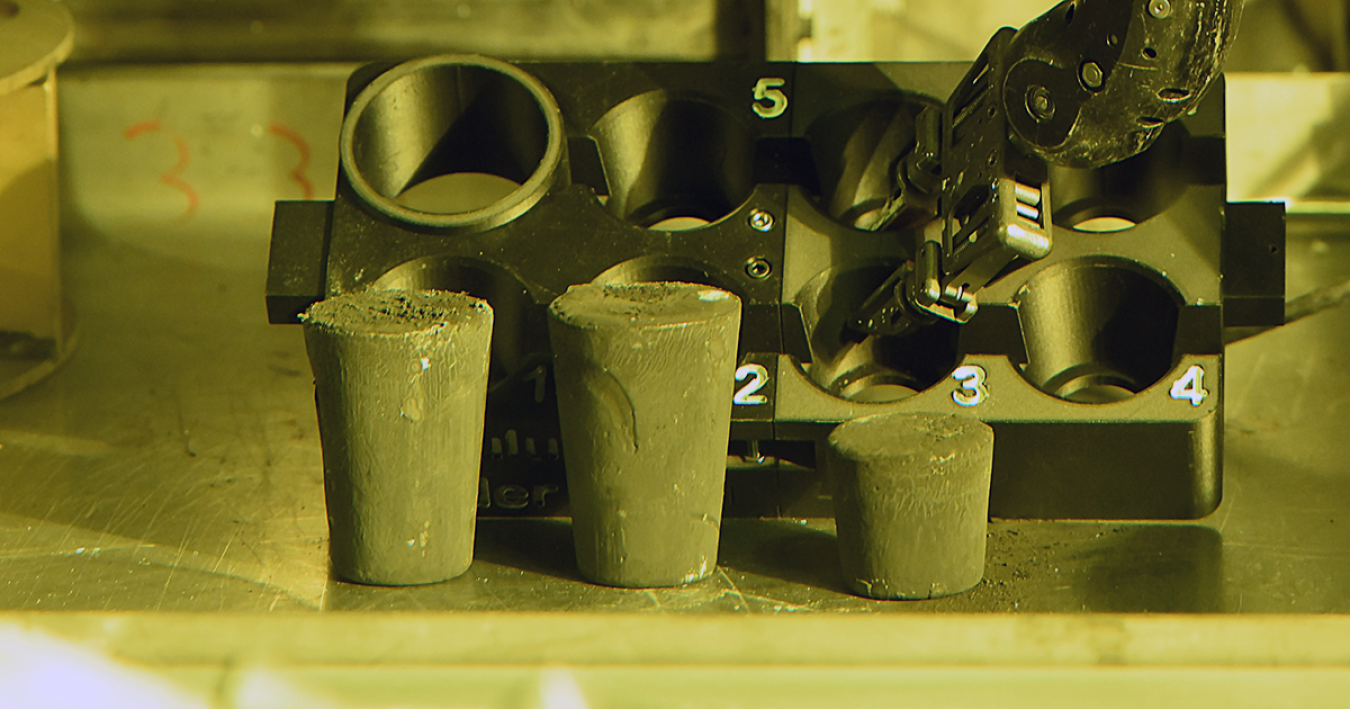 The US Department of Energy (DOE) is working to recycle used fuel from the closed EBR-II reactor to make high-assay low-enriched uranium (HALEU) which is required by most advanced reactors designs. HALEU, enriched between 5% and 19.75% with uranium-235, is not currently available from domestic suppliers
The US Department of Energy (DOE) is working to recycle used fuel from the closed EBR-II reactor to make high-assay low-enriched uranium (HALEU) which is required by most advanced reactors designs. HALEU, enriched between 5% and 19.75% with uranium-235, is not currently available from domestic suppliers
DOE plans to recover approximately 10 tonnes of HALEU from EBR-II fuel by December 2028 using an electrochemical process that was perfected over the years at Idaho National Laboratory (INL). EBR-II operated from 1964 to 1994 using a metallic alloy fuel containing highly enriched uranium (HEU).
In order to recover that HEU, the used nuclear fuel is prepared and placed into a high-temperature molten salt chemical bath. An electric current is then used to separate the HEU metal from the fission products. The recovered uranium is cleaned and mixed with lower enriched uranium to create HALEU.
The HALEU is then fabricated into a large circular ingot before being fashioned into low-dose, smaller shapes in a high-temperature furnace. The smaller ingots can then be used to produce fuel for advanced reactors. To date, almost five tonnes of HALEU material has been recovered from the used EBR-II fuel.
US-based fission technology company Oklo has expressed interest in receiving five tonnes of HALEU pending a cooperative agreement with INL that was competitively awarded in 2019. The recovered material from EBR-II will be used in the initial core of its Aurora microreactor that is expected to be first demonstrated at the INL in 2026. DOE will retain ownership over the material before, during, and after its use.
In addition to this project DOE is also supporting several efforts to provide more access to HALEU. Current activities include recycling used nuclear fuel from other government-owned research reactors; supporting the demonstration of HALEU production at the enrichment facility in Piketon, Ohio, operated by Centrus Energy Corp; and acquiring HALEU through purchase agreements with domestic industry partners.
The US Energy Act of 2020 authorised DOE to support availability of HALEU for domestic commercial use. In December 2022, DOE announced the creation of a HALEU Consortium to support the establishment of domestic HALEU infrastructure and to: calculate HALEU demand estimates for domestic commercial use; purchase HALEU made available to members for commercial use; carry out demonstration projects using HALEU; and identify actionable opportunities to improve the reliability of the HALEU supply chain.
The Piketon plant is currently the only US facility licensed to enrich uranium up to HALEU levels. In February, Centrus completed the operational readiness review for its HALEU production facility and in June received permission from the Nuclear Regulatory Commission to begin operation. DOE says Centrus subsidiary American Centrifuge Operating (ACO is on track to produce 20 kilograms of HALEU before the end of the year. ACO will then produce 900 kilograms the following year, with additional options to produce more HALEU in future years pending congressional appropriations.
Recently Oklo signed a Memorandum of Understanding (MOU) with Centrus to support deployment of Oklo’s Aurora microreactors and advanced nuclear fuel production in Southern Ohio. Oklo and Centrus became partners in 2021 after signing a Letter of Intent to cooperate in the development of a HALEU fuel facility.
Centrus has also signed a MOU with US-based TerraPower to expand collaboration aimed at establishing commercial-scale, US production capabilities for HALEU to supply TerraPower’s first-of-a-kind Natrium reactor and energy storage system. In October 2022, Global Nuclear Fuel-Americas (GNF-A), a GE-led joint venture, and TerraPower agreed to build a Natrium Fuel Facility at the site of GNF-A’s existing plant site near Wilmington. The facility, which will use HALEU, will be jointly funded by TerraPower and DOE through the Advanced Reactor Demonstration Program. TerraPower and Centrus have been working together since 2021 when they entered into a contract for services to help expedite the commercialisation of domestic enrichment technology at Piketon.
Image: HALEU reguli made from EBR-II spent nuclear fuel at Idaho National Laboratory (courtesy of Idaho National Laboratory)



